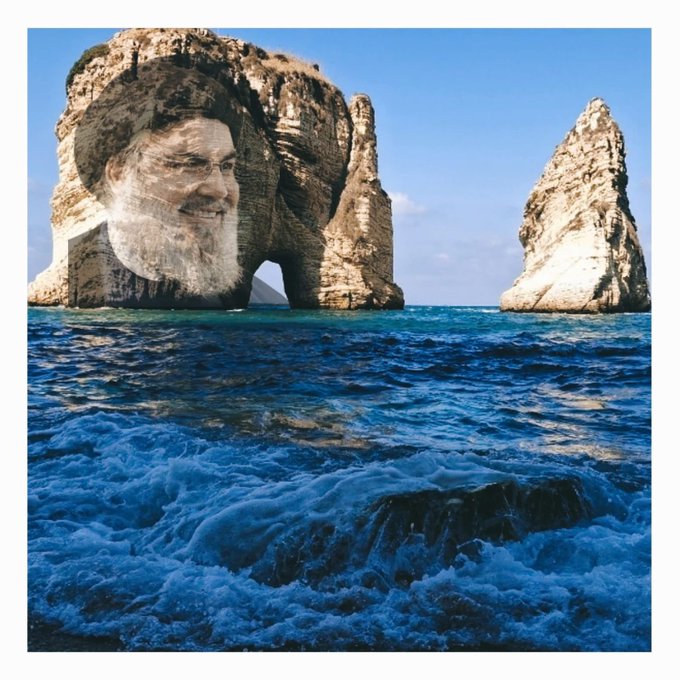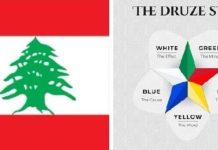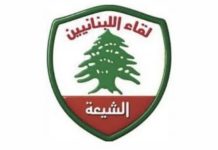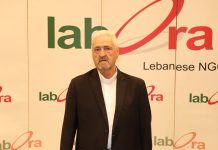حسن نصر الله والـمبالغة في التسويق overselling
نداء لأبناء الطائفة الشيعية أولا.. لقد هزلت! فهيهات.. ليس بالإبتذال وبالأحقاد تبنى الأوطان! اليوم، صخرة الروشة.. فماذا غدا؟
مقطع من رسالة إلى محرر موقع المنسقية/24 أيلول/2025
في التجارة والإعلام، يستخدم مصطلح overselling للتعبير عن المبالغة في الوصف والتفخيم من أجل إقناع الزبون بالتسويق. وتعمل هذه الطريقة كسيف ذي حدين حيث أن المبالغة تفضح النقص على مستوى الجودة أو الطلب فينتهي الأمر بالمتلقي برفض التصديق.
ولعل أصدق مثال على هذا النموذج التسويقي ينطبق على إعلام حزب الله الذي ينتهج نبرة تصل لا بل تتخطى القداسة للبناء على “أسطورة” أمينه العام السابق السيد حسن نصر الله. وتنهل هذه النبرة من منابع دينية متعددة وسبق له أن استفز المسيحيين باعتماد رمزية النور إبان الإغتيال في سبتمبر/أيلول من العام الماضي، حيث أن النور يربط بالرمز والتصوير والمضمون بالثالوث. ومن ثم، طفت إلى السطح عبارات مثل “الأقدس” و”الأسمى” في مبالغة ساخرة ربما تستفز المسلمين هذه المرة وقد عرف عن أبي بكر الصديق مثلا وهو أول من خلف النبي محمد رفضه لقب السيد لأن “السيادة لله وحده”.
ويكاد يخيل للمتابع أن أكثر من شخص يدير الملف الإعلامي للحزب نظرا لتعدد النبرات والنغمات التسويقية، فتارة يتم التركيز على الخطابة وتطريز النص بحقل معجمي منوع للقداسة والألوهية، وطورا يتم الغوص في الهوية الثقافية اللبنانية بحثا عن بقعة تحتوي قسرا جذورا للسيد ولو لم توجد. ومن هنا اختيار صخرة الروشة التي لا تمت لبيئة الحزب ولا لأيديولوجيته بشيء ولا حتى لهويته المتعارضة مع إبداع صباح وأشجان فريد الأطرش وأشواق عبد الحليم حافظ ولقاءات العشاق وأغاني فيروز الخالدة وواحة التلاقي فوق الصخرة وبين الأمواج المتلاطمة في نفقها الشهير.
المبالغة في التسويق باتت سمة تكشف الكثير عن التوق للتسامي وإعطاء المعنى لتفاصيل أقل من عادية.. كأن يروّج “للعروج” إلى السماء وكأن بوصلة شعب الله المختار أعيد تصويبها أو لعبادة الزهور التي كانت ميزانيتها لتكفي لإعادة كثر إلى الديار.. والأخطر من ذلك، اللطم الديني بنكهة سياسية فتواها شتم رأس الجمهورية ورئيس الحكومة.
إن هذا الإمعان في التسامي والتفخيم ليس سوى دليلا آخر على الإفلاس، ومحاولة أخيرة للاستفزاز وللتحريض ضد رموز الدولة. لعل الأجدى بالمحرضين خلف الشاشات والعبارات المنمقة حدّ الابتذال، الرجوع للعبادة بلا شوائب السياسة والصلاة لأن تنقذ الأيام طائفة عريقة نجح نظام الملالي على مدى أعوام بسلخها عن الدين وربطها بالايديولوجيا التي لا تخدم إلا مصالحه.
والنداء هنا لأبناء الطائفة الشيعية أولا.. لقد هزلت! فهيهات.. ليس بالإبتذال وبالأحقاد تبنى الأوطان! اليوم، صخرة الروشة.. فماذا غدا؟
Hassan Nasrallah and the Culture of Overselling
A Call to the Shiite Community First… Enough is Enough! Nations Are Not Built on Pettiness and Hatred! Today It’s Raouché Rock… What’s Next?
Excerpt from a Letter to the LCCC Editor
In business and media, the term overselling is used to describe exaggeration and glorification as a way to convince customers. This method, however, is a double-edged sword: exaggeration usually exposes a lack in quality or demand, ultimately leaving the audience unconvinced.
The clearest example of this marketing model can be seen in Hezbollah’s media machine, which adopts a tone bordering on—if not surpassing—sanctification when building upon the “myth” of its former Secretary-General, Hassan Nasrallah. This tone often draws from multiple religious sources. In the past, it even provoked Christians when Hezbollah invoked the symbol of “light” following his assassination in September of last year—light being deeply tied to the Trinity in symbol, imagery, and meaning. More recently, absurd expressions such as “the holiest” and “the supreme” have surfaced—claims so excessive they may now even offend Muslims themselves. After all, it is well known that Abu Bakr al-Siddiq, the first Caliph to succeed the Prophet Muhammad, rejected the title of sayyid (master), insisting instead that “sovereignty belongs to God alone.”
The observer is left to wonder if multiple people are managing Hezbollah’s media file, given the variety of tones and marketing styles. At times, the focus is on grandiose rhetoric, embroidered with a lexicon of sanctity and divinity. At other times, the narrative dives into Lebanese cultural identity, forcefully attempting to plant roots for Nasrallah—even where none exist. This explains the recent choice of Raouché Rock, a landmark that has nothing to do with Hezbollah’s environment, ideology, or identity—an identity utterly at odds with the creativity of Sabah, the emotions of Farid al-Atrash, the longing of Abdel Halim Hafez, the encounters of lovers, the timeless songs of Fairouz, and that oasis of togetherness atop the rock and within its famous sea tunnel.
Overselling has become a signature trait that reveals much about Hezbollah’s desperate quest for transcendence, dressing up the trivial with exaggerated meaning—whether by promoting “ascension to the heavens,” as if the compass of the “chosen people” had been recalibrated, or by staging “flower worship,” whose bloated budget could have been better spent returning displaced families to their homes. Even more alarming is the religious self-flagellation, now flavored with politics and issued as a fatwa that goes so far as to curse the President of the Republic and the Prime Minister.
This relentless exaltation and glorification are nothing more than further proof of bankruptcy—a last-ditch attempt to provoke and incite against the symbols of the state. The better course for those behind these empty screens and flowery yet shallow phrases would be to return to worship untainted by politics, and to pray for the salvation of a venerable community that the regime of the mullahs has, for years, stripped away from true faith and shackled to an ideology serving nothing but its own interests.
And so, the call goes out to the sons and daughters of the Shiite community first: Enough is enough! Nations are not built on cheap theatrics and on hatred. Today it is Raouché Rock—what will it be tomorrow?


















